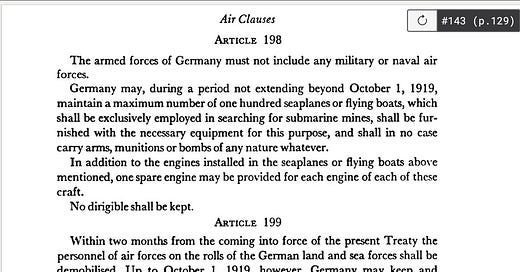American Aviation on the Cusp of WWII
"Never Has A Group Come So Far and Done So Much When They Didn't Know Where They Were Going"
The amount of research that never makes it into a book such as Suicide Jockeys is enormous. My purpose in moving to Substack was to share that research. In my personal opinion the unpublished materials add an entirely new dimension to the understanding of the history America, World War II, and the challenges the Glider Pilot Program faced. It also brings home just how much the United States did in so short a time - albeit with some major setbacks. By looking at the events leading up to major conflicts such as WWII, the events, the issues, and the players the old adages “history repeats itself” and “those that don’t know their history are bound to repeat it” echo loudly.
If this sounds like a history lesson - it is - of sorts. This is a start of a series of articles on the legislative history of the Glider Program. I will try and balance my historical and legal education in my writing, but it is important to understand that very little in the military happened without legislative approval of the Congress and approval of the Executive Branch, so my legal training will be at the forefront at times. Bear with me. There is no way to understand the events without understanding the legal wrangling that took place. With that will come the requisite infighting and power plays by the politicians, military brass, and the committees.
However, before the legal aspects are discussed the historical events leading up to the need for the Glider Pilot Program need to be laid out. Nothing, absolutely nothing, happened in a vacuum. To understand American military aviation on the cusp of World War II we have to step back to the close of World War I. This step is often paid cursory homage to before moving on, but it will define the Glider Pilot Program and the constant tug between power and glider aviation which affected the equipment, missions and morale of the glider pilots. Let’s take a trip back in time to set the scene.



